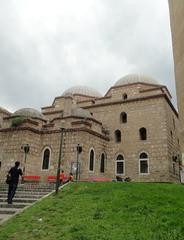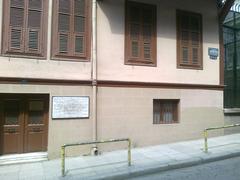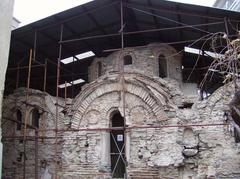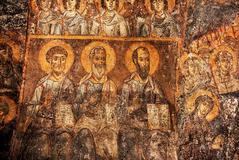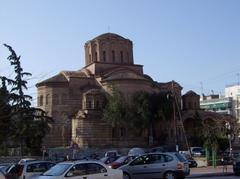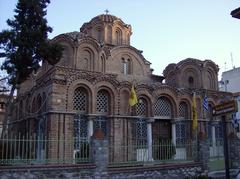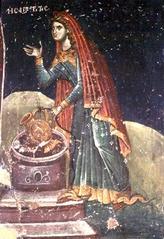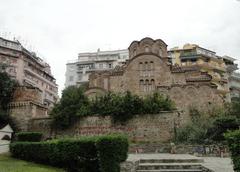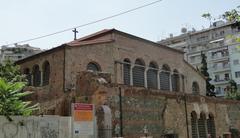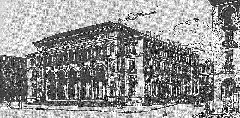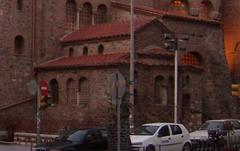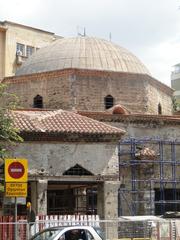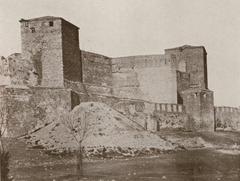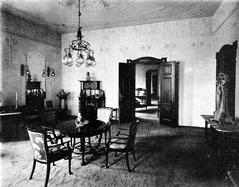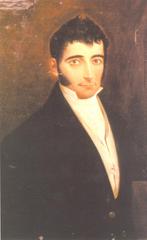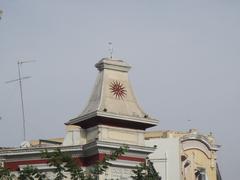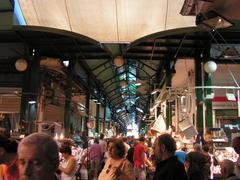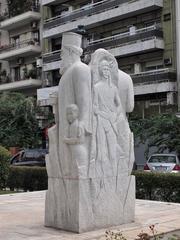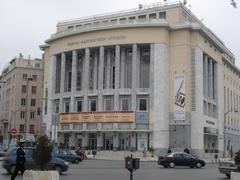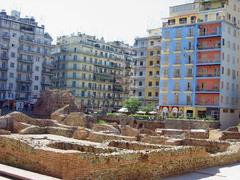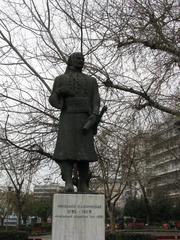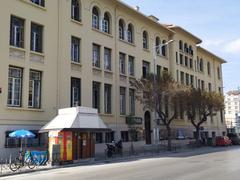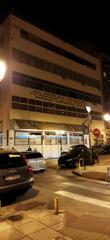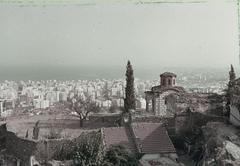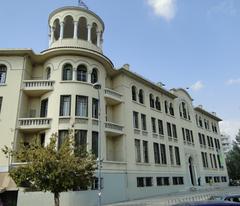Talmud Torah Agadol Synagogue Thessaloniki: Visiting Hours, Tickets, and Historical Significance
Date: 14/06/2025
Introduction
The Talmud Torah Agadol Synagogue was once the largest and most influential Sephardic synagogue in Thessaloniki, Greece. Founded in the early 16th century by Jews expelled from Spain in 1492, it became a cornerstone of Jewish religious, educational, and communal life in the city. Although the synagogue was tragically destroyed in the Great Fire of 1917 and never rebuilt, its legacy continues through surviving synagogues, memorials, and museums. This guide provides a comprehensive overview of its history, cultural significance, and practical information for visitors interested in exploring Thessaloniki’s rich Jewish heritage.
Table of Contents
- Historical Overview
- Cultural and Religious Significance
- Visiting Information
- Frequently Asked Questions (FAQ)
- Visual Resources and Interactive Media
- Conclusion
- References and Official Links
Historical Overview
Early Foundations and Sephardic Arrival
The Talmud Torah Agadol Synagogue’s origins are deeply tied to the influx of Sephardic Jews into Thessaloniki following their expulsion from Spain in 1492 (jguideeurope.org). These new arrivals transformed Thessaloniki into a major center for Jewish life, scholarship, and commerce. By the early 16th century, Jewish residents formed a substantial part of the city’s population, and Thessaloniki came to be known as the “Mother of Israel.”
Established in 1520, the Talmud Torah Agadol Synagogue quickly became the principal house of worship and advanced Torah study, reflecting the dual focus on religious service and education (pl.wikipedia.org). Its name, “Talmud Torah,” signified its role as both a synagogue and a center for learning.
Architectural Evolution and Community Role
The synagogue was constructed as a grand basilica-style masonry building, featuring three naves, Tuscan columns, semicircular arches, and a centrally located bima. The richly decorated Aron ha-Kodesh (Torah ark) and monumental entrance announced the prosperity and devotion of Thessaloniki’s Jewish community (pl.wikipedia.org).
Beyond its impressive architecture, the synagogue served as the focal point for religious celebrations, education, and community governance.
Destruction and Legacy
The synagogue suffered multiple fires in the 19th century, most notably in 1898, but was rebuilt by 1904 under the leadership of Rabbi Samuel Simha. Its ultimate destruction came in the catastrophic Great Fire of 1917, which devastated much of Thessaloniki’s Jewish quarter. The synagogue was never rebuilt, symbolizing the end of a defining era for the city’s Jewish community (pl.wikipedia.org).
During the Nazi occupation in World War II, further Jewish sites—including schools, synagogues, and the cemetery—were destroyed (History of the Jews in Thessaloniki).
Cultural and Religious Significance
The Talmud Torah Agadol Synagogue was central to the city’s reputation as a hub of Jewish learning and religious life. It was a gathering place for major ceremonies, Torah study, and community events. Its archives housed rare manuscripts and its leaders were involved in philanthropy and cultural activities (macedonian-heritage.gr, koshergreece.com).
Today, the synagogue’s legacy is preserved through memorials, educational programs, and the Jewish Museum of Thessaloniki (jmth.gr). Commemorative services and cultural festivals continue to honor its memory.
Visiting Information
Key Sites and Memorials
Although the Talmud Torah Agadol Synagogue no longer exists, visitors can explore several key sites that commemorate Thessaloniki’s Jewish history:
- Jewish Museum of Thessaloniki: 13 Agiou Mina St. Exhibits on Jewish history, culture, and the Holocaust. Open Tuesday–Sunday, 10:00 AM–6:00 PM. (Jewish Museum of Thessaloniki)
- Monastirioton Synagogue: 35 Syngrou St. The only pre-war synagogue still in use. Open Monday–Friday, 10:00 AM–4:00 PM.
- Holocaust Memorial at Liberty Square: A monument dedicated to the 50,000 Jews of Thessaloniki who perished in the Holocaust.
- Jewish Cemetery Memorial: Near Aristotle University, marking the site of the destroyed cemetery.
Guided Tours and Experiences
- Jewish Heritage Walking Tours: Available through local and international operators. Tours include the Jewish Museum, surviving synagogues, and memorials (Atlantis Travel Greece, Sephardic Balkans).
- Contact for Arrangements: Jewish Community of Thessaloniki, 24 Tsimiski St., Tel: +30 2310 272840, Email: [email protected] (Jewish Community of Thessaloniki).
Accessibility and Visitor Tips
- Dress Code: Modest attire is required at Jewish heritage sites.
- Photography: Ask permission before photographing interiors or community members.
- Accessibility: Many sites are accessible, but check in advance for accommodations.
- Safety: Thessaloniki is generally safe; expect visible security at Jewish sites.
- Language: English is widely spoken; signage is typically bilingual.
Frequently Asked Questions (FAQ)
Q: Can I visit the original Talmud Torah Agadol Synagogue?
A: No. The synagogue was destroyed in 1917 and no longer exists, but you can visit memorials and nearby Jewish sites.
Q: Are there tickets or admission fees?
A: The Jewish Museum charges an entrance fee; synagogues and memorials are usually free but may require prior arrangement.
Q: Are guided tours available?
A: Yes, book in advance through the Jewish Museum or local tour operators.
Q: Is the site wheelchair accessible?
A: Most sites are accessible, but confirm in advance for specific needs.
Q: What other Jewish historical sites are nearby?
A: The Monastirioton Synagogue, Jewish Museum, Holocaust Memorial, and Modiano Market.
Visual Resources and Interactive Media
- Explore historical photographs and virtual tours via the Jewish Museum of Thessaloniki.
- Maps and self-guided tour resources are available through local tourism sites.
Conclusion
The Talmud Torah Agadol Synagogue, though no longer standing, remains a powerful symbol of Thessaloniki’s multicultural legacy. By visiting memorials, museums, and the city’s surviving synagogues, travelers can honor the resilience and contributions of the city’s Jewish community. Plan your visit using the resources and official links provided, and consider joining a guided tour for a deeper understanding of Thessaloniki’s Jewish past.
References and Official Links
- Jewish Museum of Thessaloniki (https://www.jmth.gr/)
- Sephardic Studies (http://www.sephardicstudies.org/thes.html)
- Jewish Community of Thessaloniki (https://www.jcthessaloniki.gr/)
- Macedonian Heritage (http://www.macedonian-heritage.gr/Contributions/20010704_Nar.html)
- Saloniki Guide (https://saloniki.guide/en/Attraction-Monastir_Synagogue-p422-r189473-Thessaloniki)
- Gil Travel (https://www.giltravel.com/blog/unveiling-thessaloniki-rich-jewish-heritage/)
- Kosher Greece (https://koshergreece.com/jewish-interest-in-greece/thessaloniki/)
- Aish.com (https://aish.com/jewish-history-of-thessaloniki-salonika/)
- Atlantis Travel Greece (https://atlantistravelgreece.com/tour/jewish-walking-tour-of-thessaloniki/)
- Sephardic Balkans (https://sephardicbalkans.com/greece-jewish-tour-jewish-heritage-travel-in-greece/)
